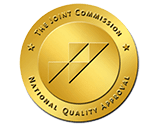Women are always told not to drink any alcoholic beverages during their pregnancy to avoid any complications or birth defects that can occur. While women should listen to this medical advice, a new study by the University of California revealed that men who consumed heavy amounts of alcohol can also bring negative effects to their baby before conception, making alcoholism treatment all the more important.
How Alcohol Can Affect Male Fertility
The Centers for Disease Control and Prevention (CDC) said that in 35% of infertility cases, male and female factors involving alcohol were involved. Binge drinking (five or more drinks within a two-hour timeframe) can have a negative effect on a man’s sperm. More than 14 mixed drinks in a week can lower testosterone levels and affect sperm count. Alcohol can also shrink the testes, which can lead to impotency. It can also change the shape, size, and movement of healthy sperm. Additionally, liver disease caused by excessive drinking can change sperm quality.
University of California Study #1 – Paternal Alcohol Consumption
Kelly Huffman, an associate professor of psychology at the University of California, felt like people knew about the dangers of pregnant women drinking alcohol for years, but not enough about what happens to men. Her research showed that the father drinking alcohol leading up to conception can have negative effects of the child’s brain and behavioral development.
In the first study, male mice consumed alcohol for two to three weeks before mating with females who consumed no alcohol. It was found that the neocortical gene expression and connectivity in their offspring was affected. The offspring also exhibited atypical features like increased anxiety or hyperactivity and reduced motor function, which are the same patterns seen in children born to alcoholic fathers.
In a previous study, Huffman’s team discovered that the paternal germ line can transmit heritable changes through multiple generations after a single prenatal exposure of alcohol. The paternal environment before conception clearly is important for your offspring to have a normal development.
It was also discovered that male offspring were more affected than female offspring by paternal alcohol exposure based on increased hyperactivity, impaired coordination, and impaired short-term motor learning abilities. Huffman’s team plans to extend the mouse study to investigate if the effects of paternal alcohol consumption on the offspring are transmitted to generations of families.
University of California Study #2 – Choline to the Rescue
Choline is a vitamin-like essential nutrient and is important for proper brain development, as it attaches to DNA and affects gene expression. In the second study, Huffman’s team exposed pregnant mice to 25% alcohol which is the usual dose for fetal alcohol syndrome. They were also filled with 640 milligrams per liter of choline chloride supplement through the pregnancy.
They wanted to test the potential rescue effects of choline supplementation on abnormal neocortical and behavioral development caused by prenatal alcohol exposure. The team found that the co-administration of choline with alcohol can get rid of the horrible effects that alcohol exposure could cause. This has the possibility of reducing the multigenerational transmission of fetal alcohol syndrome in people with prenatal alcohol exposure.
How Alcohol Affects Female Fertility
Women who drink alcohol also need to take caution if they plan on having a baby. Doctors already tell pregnant women that alcohol is an important beverage to stay away from. Heavy drinking by pregnant women can lead to interrupting the menstrual cycle and ovulation. It can also change hormone levels and cause hyperprolactinemia or prolactin in the blood. Your baby can experience harmful birth defects if you do not control your drinking.
What Else Can Be Done to Improve the Fertility of Alcohol-Exposed Fathers?
The good news, as previously mentioned in Huffman’s study, is that the effects of alcohol on sperm can be reversible. One study in the European Journal of Preventive Cardiology says that men should not consume alcohol six months before fertilization and women should not drink alcohol one year before as well as avoiding it while pregnant. Another study showed that it took three months for the production of healthy sperm to come after alcohol consumption stops.
Living a healthy lifestyle is important for boosting fertility. You can start with going to treatment if you know you are planning on starting a family. Treatment specialists can help you achieve sobriety before it is time to conceive. Going on a Mediterranean diet can also be good for your sperm, since it encourages you to eat more fruits, vegetables, seafood, and healthy grains. Additionally, you can exercise regularly to boost testosterone levels and learn stress management techniques to keep cortisol levels down.
Speaking to a Doctor
If you are worried that your excessive drinking can do harm to your unborn child, it is best to make an appointment with your doctor. You could take a male hormone analysis and semen analysis to detect any underlying issues. There are also home kits where you can detect your sperm count. If you have any concerns about testing your sperm, please speak to your doctor about it.
Remember that a baby is trying to develop in the womb. Alcohol can disrupt that and lead to challenges your baby will have to suffer through beyond their control. By going into treatment and taking control of your alcoholism, you are taking control of the health of your baby and ensuring that they lead a typical life.
If you are planning a family, but need help getting your drinking habits under control, we are here to help. At Silver Lining Recovery, we believe in staying relaxed while receiving treatment, and that the most effective way to treat addiction is to find the underlying cause of it and offer professional help. Through therapies such as EMDR, CBT, DBT, meditation treatment, faith-based treatment, and academic and career counseling, our knowledgeable and experienced counselors provide customized treatment programs and can help uncover unresolved issues. For more information, please call us today at (833) 844-4769.







